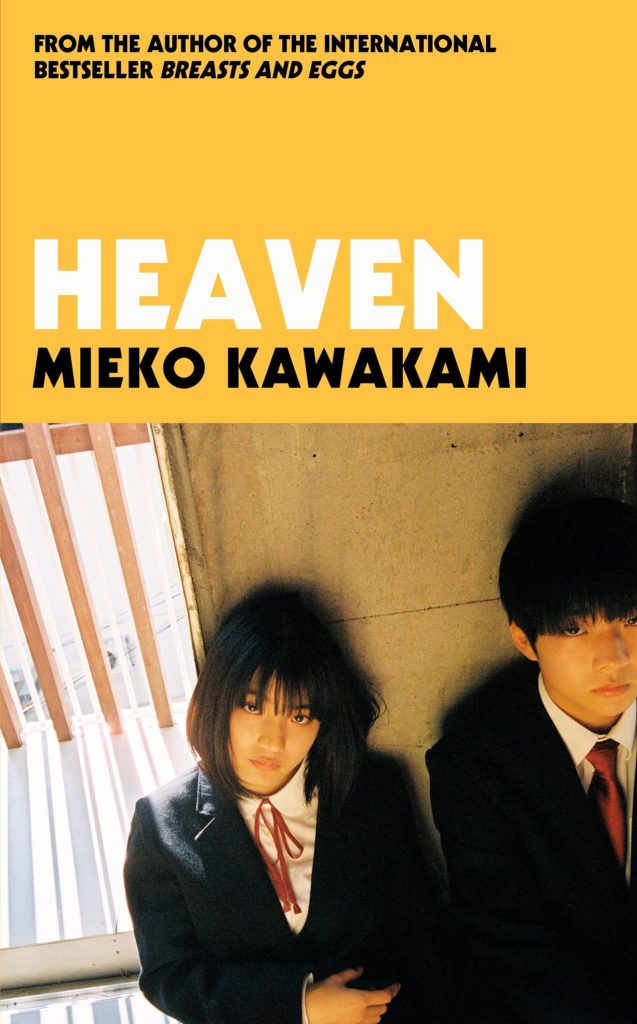Review by Tina DeBellegarde
Heaven by Mieko Kawakami (translated by Sam Bett and David Boyd) is a heartbreaking, yet uplifting story of two outcasts who find and protect each other through a horrible year of school bullying.
The narrator is targeted because he has a lazy eye. His classmates call him “Eyes,” and the reader knows no other name for him. Kojima is bullied for her lack of hygiene. They bond over their common experience and learn to understand each other and themselves better through the process. They find comfort in exchanging notes and in the handful of times they meet in person.
The story is told from the boy’s perspective but is propelled by the girl. Kojima initiates the notes, arranges the meetings and she plays life coach to them both. This story demonstrates how social interaction is a necessary component for self-understanding. Neither has had sufficient positive social interaction, so that their new relationship is revelatory for them. Their missives become long and meandering. They evolve into a means for them to delve into their own feelings. The few meetings they can safely maneuver develop into the same kind of emotional exploration.
The boy gives in to his role as a victim. Kojima, on the other hand, does not see the two of them as victims. She pities the bullies who are stuck in their ways, not knowing what they are doing, not having any real motivation, and blindly following others. Kojima sees her pain and sadness as having a purpose.
“But it isn’t meaningless. When it’s all over, we’ll reach a place, somewhere or something we could never reach without having gone through everything we’ve gone through. Know what I mean?”
Kawakami manages to place us squarely in the heads of these adolescents. Reader beware, your empathy will be stretched to its limits by the scenes of bullying, but the poignancy of the relationship between the two main characters is too beautiful to miss.
The translation is rendered masterfully by Sam Bett and David Boyd. They were able to achieve the difficult task of capturing the language of young teenagers for a readership in different cultures and make it believable.
In an era when we may be dropping our defenses around bullying, having implemented so many programs to address this scourge, do we believe, perhaps, that we have done all that we can do? Have we become complacent? Heaven is a harsh reminder that the suffering has not stopped. Although the subject may seem worn out, Kawakami manages to make it new. These children have unique attitudes towards their plight, and the author manages to include enough humor and heart to make the reader believe in some hope, without resolving the story in a neat bow. With Heaven, Mieko Kawakami has proven once again that she can produce a social critique while remaining entertaining.


